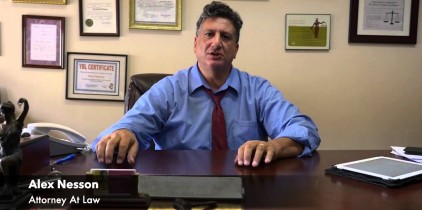This is the first in a series of newsletter articles and web site blogs in which I will discuss the impact of COVID-19 on my legal practice and the legal system in Massachusetts.
In this article I’d like to describe my law practice during this unprecedented time. In subsequent articles I’ll focus on how the pandemic has impacted the courts and legal procedures.
I am writing this at 8:30 in the morning in my sweats, having a leisurely cup of coffee, petting my three, large dogs who are vying for snuggling room. I am an early riser, typically up by 5 a.m., but with courts effectively closed, I don’t have to rush to review overnight court-related documents prior to an early morning hearing. Instead of rushing off to court I respond to emails from the previous night and watch online seminars focused on some of the more cutting edge legal issues and case law brought to the fore by COVID-19.
I’m fortunate that, in addition to my office in downtown Taunton, I have a home office where I’m able to take advantage of technology and conduct a lot of my work remotely when not meeting clients or being in court. Social distancing has not been too difficult with call forwarding and cloud-based systems allowing my staff and me to communicate by phone or email and share documents. While I have video conferencing capabilities, most of my clients prefer talking on the phone or using email. A divorce mediation case I’m starting this week will be via Zoom.
Instead of preparing for court appearances, I now prepare for telephonic hearings, future courts dates and resolving cases. In fact, I have a very complicated telephonic restraining order hearing next week that includes an ongoing divorce, DCF, GAL , video evidence and several witnesses. Presenting a case without the ability to be there in person and without video capabilities is requiring a lot of out-of-the-box planning.
I spend a lot of my time speaking with my clients about their options (or, given the court closures, lack of options). Sometimes I’ve been able to resolve cases through informal discussions with the other parties or with DCF. Today I’m finishing up a draft of a divorce agreement that was facilitated because all parties and their attorneys were able to work reasonably.
In addition to altering court procedures and availability, COVID-19 has presented new and unique challenges related to social distancing and child custody. I have clients who have issues related to high risk caregivers, perceived inadequate social distancing by caregivers, and closed supervised parenting centers and DCF supervision. I try to bring parties together based on reasonableness and common sense and only file actions in court as a last resort.
The pandemic has motivated people to work on their estate planning, including wills, durable power of attorney and health care proxies. Addressing this gives people some peace of mind especially in these chaotic times. This is a fairly quick process and relatively inexpensive for most of my clients.







